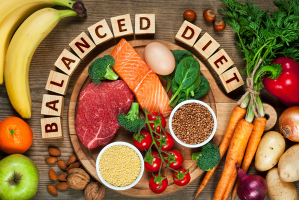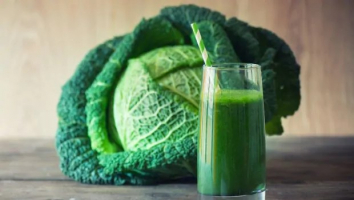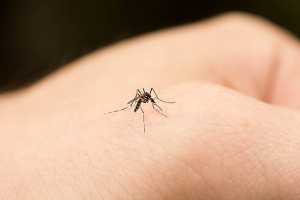Top 8 Natural Remedies for High Cholesterol
One of the main risk factors for heart disease is high cholesterol. Your chances of developing heart disease and suffering a heart attack increase as a result. ... read more...Your risk of having a stroke may also increase. Your chance of developing these conditions is particularly increased by high levels of low-density lipoprotein (LDL) cholesterol. LDL is frequently referred to as "bad" cholesterol. Read on to find out some natural remedies for high cholesterol!
-
The herb astragalus is used in traditional Chinese medicine to boost the immune system. It contains anti-inflammatory and antibacterial effects. It is regarded as an "adaptogen". This indicates that it is believed to defend the body from various stresses.
Only a few studies have been done, but astragalus may be good for your heart. According to one Chinese study, it may benefit those who have severe forms of heart disease by alleviating symptoms, lowering cholesterol levels, and increasing heart function. Astragalus flavonoids reduce the level of blood LDL cholesterol and also prevent the formation of clots in the arteries. However, the National Center for Complementary and Integrative Health (NCCIH) states that there aren't enough high-caliber clinical human trials. To better understand how astragalus might impact your cholesterol levels and overall heart health, more research is required.
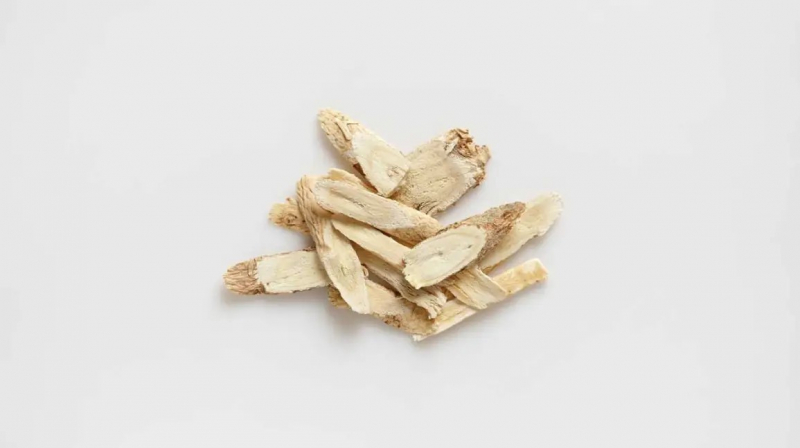
Astragalus 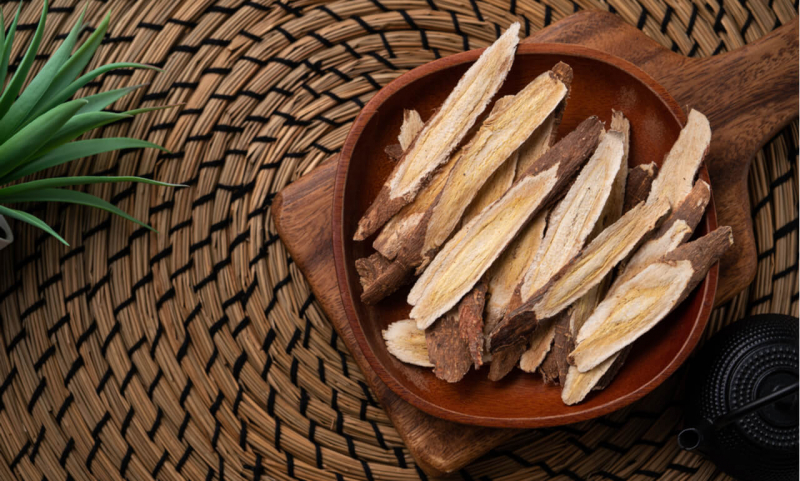
Astragalus -
A plant related to the rose is the hawthorn. Since the time of the Roman Empire, the leaves, fruit, and flowers of hawthorn have been used to treat heart conditions. The plant has been shown to be an effective treatment for less severe forms of heart failure in some studies.
People with heart failure have been investigated when given hawthorn (a condition in which the heart is unable to pump enough blood to other organs in the body). According to a number of studies, hawthorn greatly enhanced heart function. Studies indicate that the herb can enhance a person's ability to exercise following heart failure. Participants in the research claimed that hawthorn greatly reduced disease symptoms (such as shortness of breath and fatigue). The NCCIH cautions that research findings are conflicting. Hawthorn's effectiveness in treating other heart issues is unknown due to a lack of sufficient research evidence. Hawthorn can also interact adversely with a variety of prescription medications and other herbs.
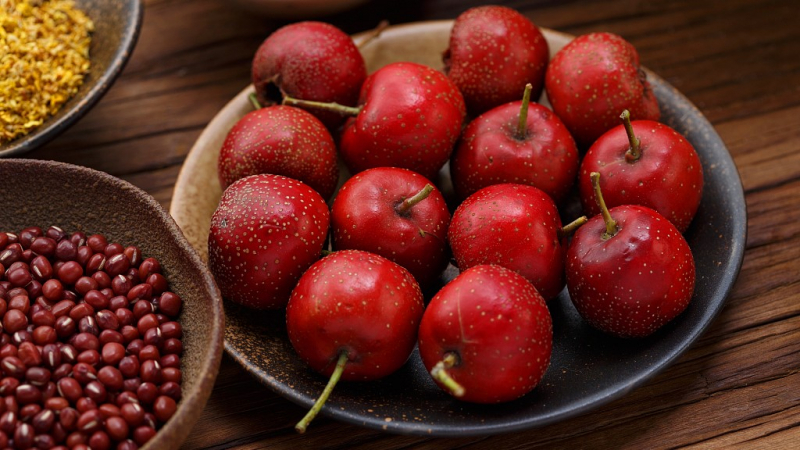
Hawthorn 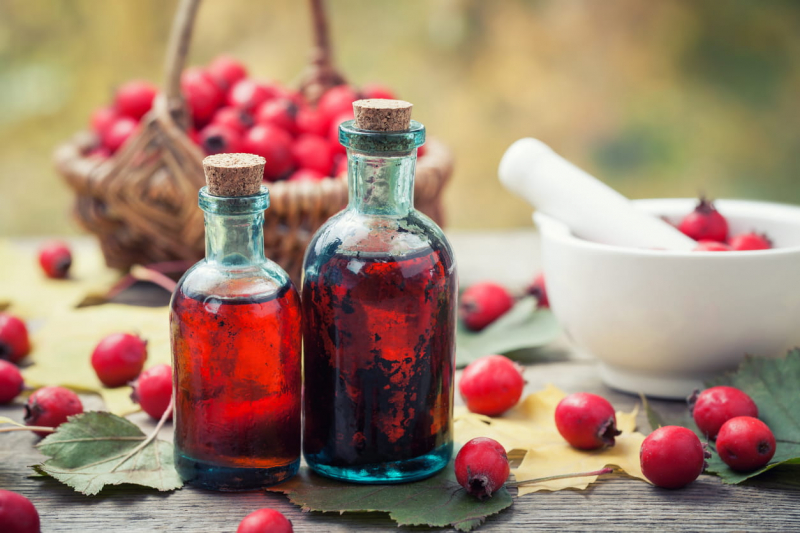
Hawthorn -
In Mediterranean cultures, flaxseed has been consumed and used as medicine for thousands of years. It is currently widely used in the US to treat a variety of medical conditions.
Flax seed comes from the flax plant. High levels of alpha-linolenic acid are present in flax seed and flaxseed oil (ALA). An omega-3 fatty acid that may help reduce your risk of heart disease is this one. Early research also suggests that flaxseed might help lower high blood pressure, which plays a role in heart disease. Several studies show that taking flaxseed daily can reduce total cholesterol and low-density lipoprotein (LDL, or "bad") cholesterol levels. But the NCCIH says that studies on flaxseed's benefits for heart health have given different results. Studies have shown that postmenopausal women and people with high cholesterol may benefit most from flaxseed preparations' ability to lower cholesterol.
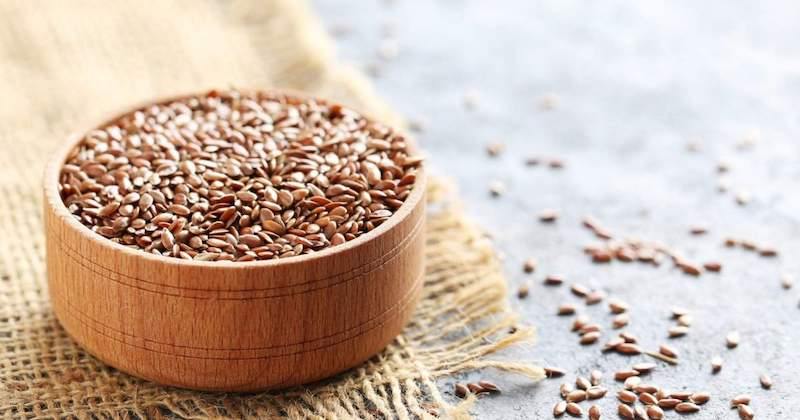
Flax seed 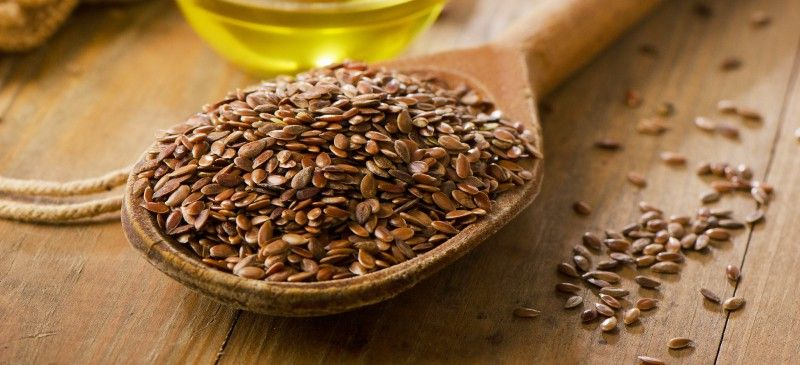
Flax seed -
Fish and fish oils are other sources of omega-3 fatty acids. Particularly rich sources include salmon, tuna, lake trout, herring, sardines, and other fatty fish.
Omega-3 fatty acids found in fish are believed by experts to help lower the chance of developing heart disease. Omega-3 fatty acids and other nutrients found in fish, or a combination of these nutrients and omega-3 fatty acids, may help in heart health. You may reduce your risk of having a heart attack by eating one or two servings of fatty fish per week. Omega-3 fatty acid supplements or other omega-3 fatty acid-rich foods may also be beneficial if you have heart problems. Examples of good sources are walnuts, canola oil, and soybeans. The benefits of eating fish rich in omega-3 fatty acids are better supported by research than those of taking supplements or eating other foods.

Fish oil supplements with omega-3 fatty acids 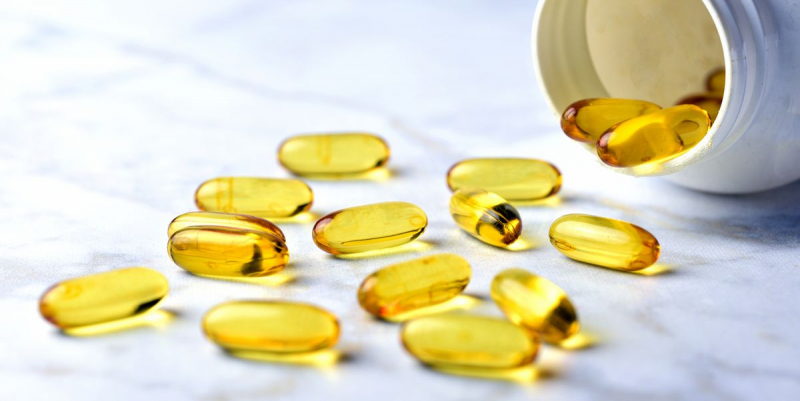
Fish oil supplements with omega-3 fatty acids -
Blood cholesterol and total cholesterol levels can both be reduced by consuming red yeast rice. Despite being usually regarded as safe, the supplement may have the same adverse effects as statin cholesterol medications.
Monacolin K is present in some red yeast rice products in significant amounts. This molecule has a chemical similarity with the lovastatin active component, a medication used to decrease cholesterol. This ingredient, found in red yeast rice products, may help lower your blood cholesterol levels. But monacolin K is rare or nonexistent in some red yeast rice products. A contaminant known as citrinin is also present in some. Kidney failure may be caused by this toxin. You typically have no way of knowing whether products include citrinin or monacolin K. It is therefore difficult to determine whether products will be reliable or safe.
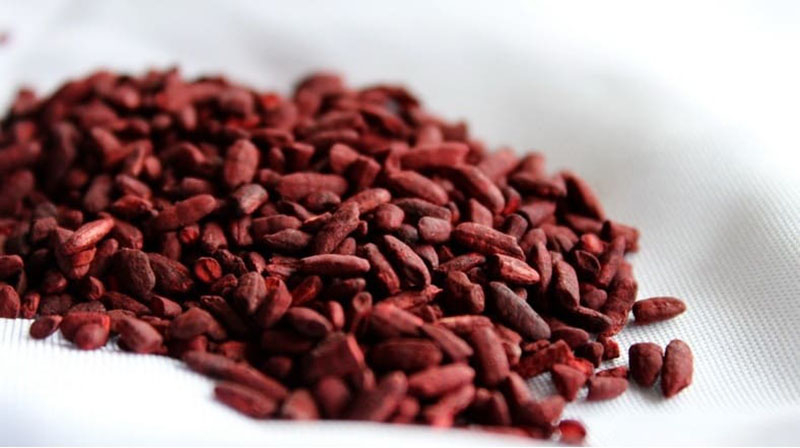
Red yeast rice 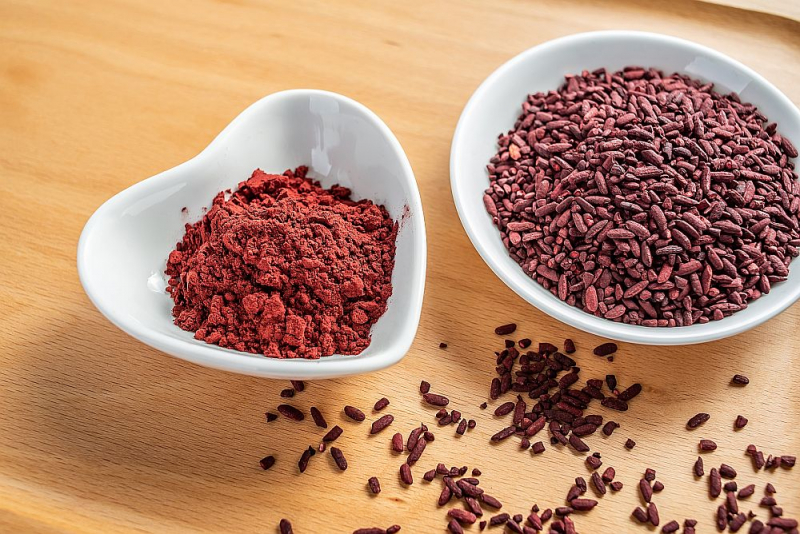
Red yeast rice -
The majority of Americans do not eat enough fiber, which is essential for a healthy digestive system. Studies found that fiber reduced LDL cholesterol more effectively than a low-fat diet alone.
According to the American Heart Association, insoluble fiber lowers the overall risk of heart disease while soluble fiber lowers LDL cholesterol. Soluble fiber works to lower cholesterol even when you eat a low-fat, low-cholesterol diet. It helps to prevent blood sugar spikes that trigger your body to make more cholesterol. In oats, there is a significant amount of soluble fiber. Fruits, vegetables, and legumes like beans and peas are additional excellent sources of soluble fiber. Eat less "white" or refined grains and more whole-grain bread and pasta. Supplemental fiber can also help to boost soluble and insoluble fiber consumption.
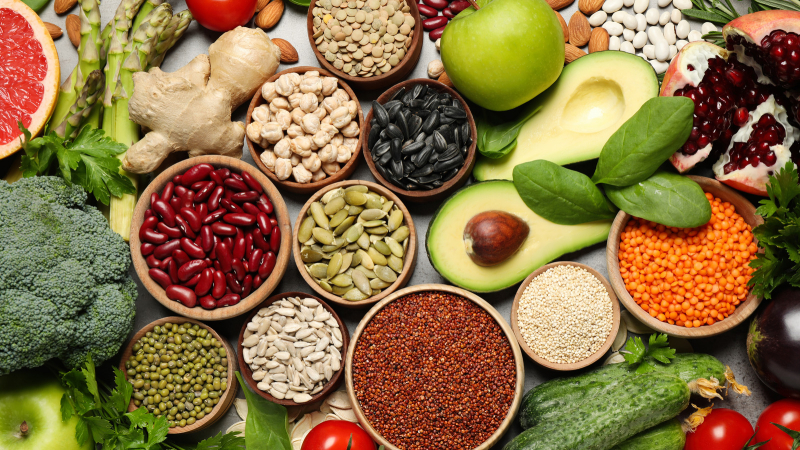
Soluble fiber 
Soluble fiber -
Numerous fruits, vegetables, nuts, seeds, grains, and other plants also contain compounds called plant sterols and stanols. Additionally, some processed foods, such as yogurt, margarine, and orange juice, are fortified with plant sterols or stanols.
Your risk of heart disease may be reduced by consuming plant sterols and stanols. They help prevent your small intestine from absorbing cholesterol. Your blood's LDL (bad) cholesterol levels may drop as a result. The impact on decreasing cholesterol differs from person to person. There is proof that consuming 2g (between 1.5g and 3g) of plant stanols and sterols on a regular basis as part of a healthy diet will reduce LDL (low-density lipoprotein) cholesterol by 7.5–12%. There is short-term evidence that taking plant stanols and sterols lowers cholesterol levels, but there is no long-term proof that doing so also lowers your risk of having a heart attack or stroke.
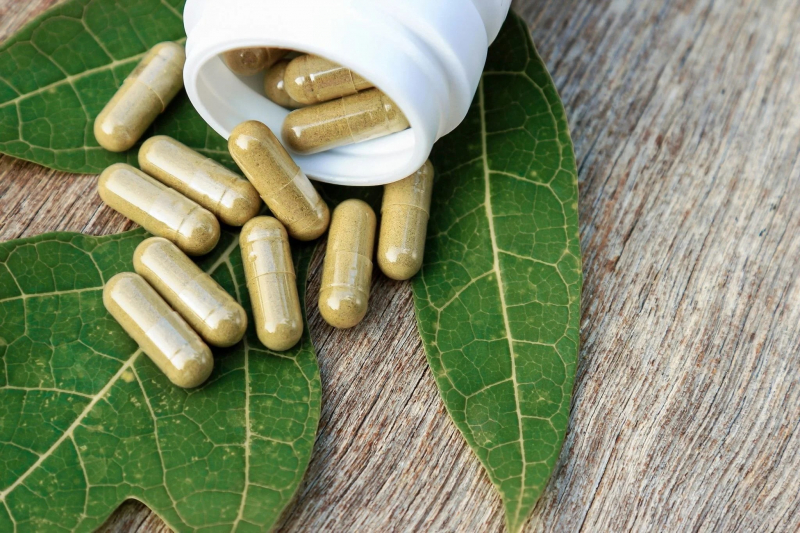
Plant sterol and stanol supplements 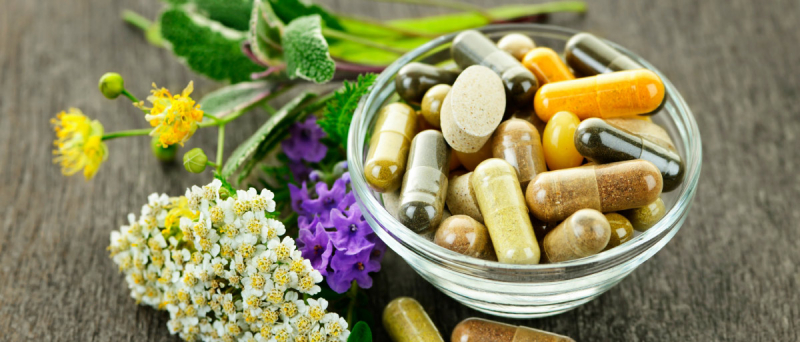
Plant sterol and stanol supplements -
The edible bulb known as garlic has been used for thousands of years in both cooking and medicine. You can eat it cooked or raw. Additionally, it's available as a tablet or capsule-form supplement.
Since ancient times, people have used garlic as a medicine, and it may help lower blood cholesterol. According to NCCIH, some research indicates that garlic may help lower blood pressure, lower cholesterol levels, and stop the progression of atherosclerosis. A study of 39 trials, which was published in the Avicenna Journal of Phytomedicine, revealed that aged garlic extract could lower LDL and total cholesterol. This is supported by research published in the Journal of Nutrition, which found that aged garlic extract decreased total cholesterol and LDL by 7 and 10%, respectively. Garlic is generally well tolerated, however, patients should consult with their doctors before taking supplements.
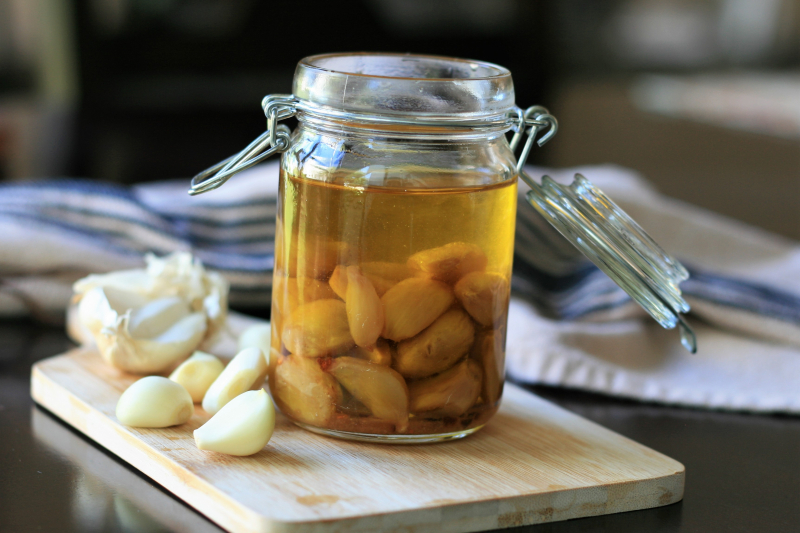
Garlic 
Garlic










